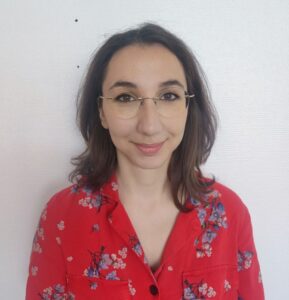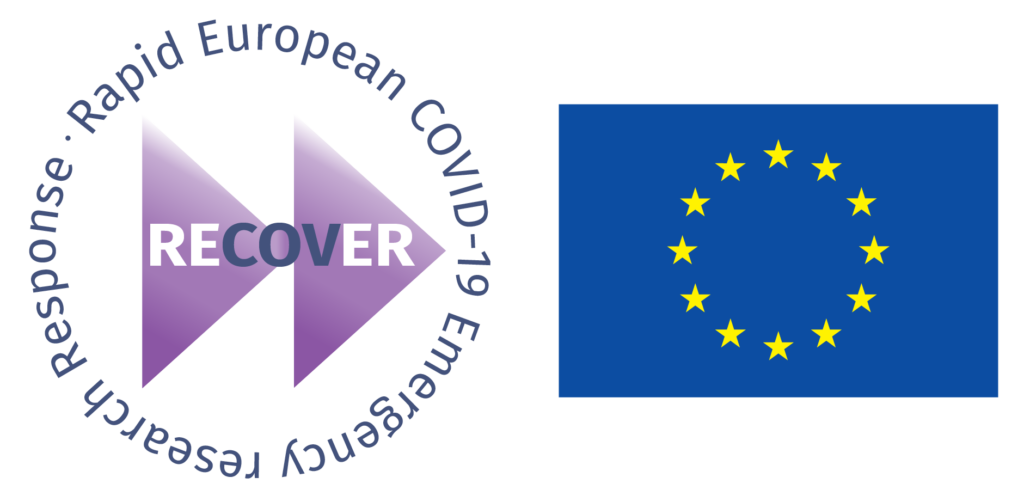12 July 2023
This Insights interview puts the spotlight on the modelling studies in Work Package 6 of RECOVER. Elisabetta Colosi, PhD student in Public Health & Epidemiology under the supervision of Vittoria Colizza at the Pierre Louis Institute of Epidemiology & Public Health in Paris, elaborates on her research and how it informed policy making during the COVID-19 pandemic.
What is your role within RECOVER/in the COVID-19 pandemic and what does it entail?
I joined RECOVER through my PhD as it aligned with the objectives of the project. I work on the modelling part and more specifically, I research the COVID-19 transmission dynamic in specific settings like schools.
Could you tell us a bit about the work you’re involved in?
We developed a mathematical model that describes the transmission in schools, meaning how children get infected with COVID-19 through the contacts that occur there. We simulate different testing strategies to find the best option according to the objectives. For example, if the objective is to minimise the number of cases in children, we will test which measure is the best to take in order to achieve this. In this case, we investigated if it is better to put all classmates in quarantine or to do testing on a weekly or biweekly basis, and hopefully find asymptomatic cases that otherwise would go undetected.
Was your model specific to the French situation or could it be expanded and applied to other situations as well?
We started from the situation in France, where the reactive screening was adopted. As the pandemic evolved, we adjusted the model to include new parameters such as the vaccination and the different variants. For example, with the Omicron variant we adapted our model to also consider the possibility to contract the infection again after the initial recovery. Part of the analysis we did was specifically designed for France, but the work we published was also suitable for a more generic situation in Europe.
Now that the pandemic is officially over, is your work done or is it still being updated?
The aim of the project was to support authorities with managing the school situation. We advised them on how to safely keep the schools open in order to minimise disrupting the education of the children. I hope our work can also be valuable in providing insights for a new pandemic preparedness plan in the future. Especially for diseases with similar characteristics such as asymptomatic transmission, which can often be the case in children.
In the context of COVID-19, what are some things you’ve found easy/challenging to work with?
At times, it was challenging to provide quick answers for certain questions that normally would take much more time to research. However, this was also positive in the sense that it pushed us to work even harder and get results faster. Overall, it was a truly educational and inspiring process as I felt the importance of the work I was doing and the possible consequences.
In addition, the collaboration within the team and with other research groups outside the RECOVER consortium went well. This was extremely useful as we could compare results and have empirical proof that we found similar implications. It was also interesting to see how other groups parameterised their model.
Do you have any lessons to share for the future?
Collaboration is key, not only between scientists but also with the authorities. It was interesting to see how scientific research and mathematical models can help solve a collective problem. I was surprised by the fact how interested and involved the general population was in our research, as this is normally not the case. It is beneficial that there is a general understanding of the pandemic and its ‘mechanisms’ amongst the broader audience as it helps with this collaboration as well.
About Elisabetta Colosi
 Elisabetta Colosi is a Ph.D. student in Public Health and Epidemiology at Inserm, iPLesp in Paris. After her earning her Master’s Degree in Mathematics for Life and Data Science from Trento University in 2019, she joined the Epicx Lab directed by Dr. Vittoria Colizza. Elisabetta is interested in infectious disease modeling and computational epidemiology. Over the past three years, her research activities focused on studying COVID-19 transmission in schools and assessing testing strategies’ effectiveness.
Elisabetta Colosi is a Ph.D. student in Public Health and Epidemiology at Inserm, iPLesp in Paris. After her earning her Master’s Degree in Mathematics for Life and Data Science from Trento University in 2019, she joined the Epicx Lab directed by Dr. Vittoria Colizza. Elisabetta is interested in infectious disease modeling and computational epidemiology. Over the past three years, her research activities focused on studying COVID-19 transmission in schools and assessing testing strategies’ effectiveness.
